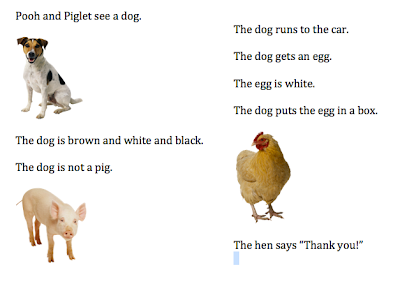What a long, strange week it’s been.
Last Sunday,
tired and cranky after the birthday party, we
went to church and saw a Roma lady who has been coming off and on since winter
with her two little children. I can’t always understand her very well, but as we
talked I got that her home has been destroyed by the police, and she’s been
sleeping on the street with her kids.
I didn’t know what to say or do, but I made sure that a
couple other people there knew the situation, and I saw several people (who
actually speak fluent Albanian, and a few who actually are Albanian) talking with her and working to connect her with some
emergency services.
As we walked home, I took a long look towards the lake – we
pass by that way – and saw that the tiny Roma village that has been evolving
just below the dam is gone. Completely. I mean, there’s not a single rope or
sheet of plastic left.
Last weekend we’d noticed a police sweep through the big
park by the lake, ejecting all informal/unlicensed vendors – even breaking apart
cement structures with crowbars – and then when I’d noticed the silence of the
streets where Roma children often hang out playing and begging, I’d thought
about this woman who comes to our church and wondered if they were ok.
We knew she lived there, by the dam, because we’d walked
past one day, coming back from the amusement park, and she’d run out from under
the old cypress trees that sheltered their makeshift dwellings to say hello. We
stopped to chat, and very quickly she and we were surrounded by a small crowd
of women and children staring curiously. One woman, off to the side, held out
her hand asking for money and was instantly shushed by all the others. A little
girl who had gathered up discarded mimosa blooms was sitting on a cement block
trying to sell the withering flowers. It didn’t take long to get to the end of
our language ability and then we went on our way.
Since then we’ve occasionally run into women who recognize
us from that single encounter and enthusiastically say “hi” (and sometimes ask
for money).
This little Roma community was never anything but
precarious. It was situated on a large vacant space below the dam (so it has to
be really damp most of the time, possibly even swampy). On one side is a sports
complex, on the other a car wash, and below it is a dump filled with rubble and
trash. The homes were built of discarded pieces of plywood, cardboard, plastic,
tied together with rope. But laundry was hung to dry on lines strung
everywhere, and I’d noticed one house had a row of potted plants along one
side. And they had those lovely old cypress trees (that are still there). One
day when we went past I noticed three young men hanging out with a boom box,
smoking and dancing a little. It may have been a makeshift squatter camp on a
dump site, but it was their home.
It reminded me
a lot of the townships in South Africa, although obviously not anything
near as big. But the dynamics are also similar. People pushed to the margins of
society by those who have control of the land and the resources, making do as
best they can with what they have, constantly being beaten down because of
prejudice.
I feel helpless and stupid in the face of this, of things
like this. The root causes of these problems are so deep, and my understanding
such a small sliver. I feel frustrated by my lack of knowledge of the language
and culture. I also know the complications involved in trying to “help” people
in these kinds of situations.
On one level, it would look so simple – we have extra room,
why couldn’t we invite the woman and her children to live with us until she
finds her feet? But the thing is… it’s not just her, is it? It’s also her
husband and two teenaged children. It’s her whole extended family and the
literal and metaphorical baggage that they’d bring. It’s also the centuries of
prejudice and discrimination that don’t allow her people to find employment in
the regulated, formal sector. It’s also that dark side of charity, the power
you gain over someone when you give them a gift they cannot repay, their
indebtedness to you, and how that warps relationships.
It also frightened me how quickly I stopped thinking about
this woman and her children. I rained for four days this week, and I did think
about her during pauses in my day, wondering where she was sheltering from the
rain, wondering where the others from her little community have gone. But by
Tuesday I’d lost the feeling of dreadful sadness and worry I’d felt on Sunday,
the outrage I’d felt when I saw how cleanly swept was the vacant area where
they had been living.
Shpresa asked me, when I told her the story, “but where did
they come from? Where were they before they made their houses there?” I don’t
know. There’s so much I don’t know.
We’re here such a short time, overall. I don’t know what I
can do to try to bring good into this situation. But, having met this lady and
her children, having sat with them in church, having acknowledged simply
through saying good morning our common humanity, I feel like a turd for doing
nothing.
Terry gives me the advice I always give students going through this range of emotions - "join something." I guess I have to figure out what.
















































